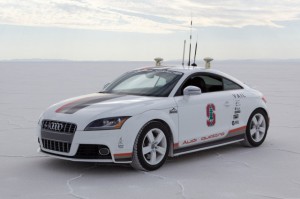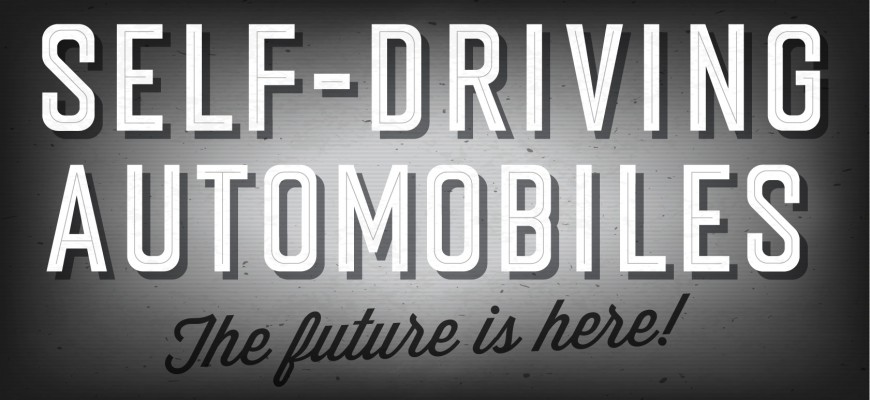New Laws Make Self-Driving Cars a Reality

Google’s self-driving car
We’re already used to the idea of self-driving cars as a science fiction story, but seeing them in reality is a whole different notion.
On October 27, 2014, a New Jersey Senate panel approved a bill aimed at becoming one of the first states in the country to allow for licensed driverless cars to operate on its highways. California, Nevada, Michigan and Florida have already passed similar legislation and several other states will soon follow.
This is just one of the many pieces of automotive legislation that are moving self-driving cars away from science fiction and into reality and onto our streets.
Here are a few things you must know about these driver-less cars:
The Technology Is Here
The possibility of seeing these vehicles on the road is not as futuristic as you might imagine. In fact, Cadillac recently announced plans to release a self-driving model in 2017. The goal of these self-driving cars is to enable the driver to type in an address, and then rely on technology to drive them to their destination. The result will be a higher level of convenience, efficiency and on-road safety.
Reduced Number of Motor Vehicle Accidents
One benefit of a self-driving car is that there will be far less accidents and casualties due to driver errors. Technology is expected to take the human error factors like reaction time and impaired vision out of the equation. Additionally, the New Jersey bill will require autonomous vehicles to adhere to standard regulations including updated registration, minimum safety standards and testing requirements in order to drastically increase the safety level of them being on the road.
No more abrupt lane changes, speeding through a red light or falling asleep behind the wheel. So as long as the technology doesn’t fail (several hundred thousand accident-free miles says it won’t), accidents will drastically decline .

Audi TT self-driving car
Less Time Spent Commuting
There are a number of factors that contribute to a quicker commute with driverless cars. For instance, with a higher level of safety on the roads, there will be fewer accidents that cause blocked lanes and traffics jams. Driverless cars also take out driver reaction times and hesitancy, which will reduce the amount of backups on the freeway.
Heavyil trafficked area? Your driver-less car will automatically re-route and find the way to get you to your destination the quickest.
Not only will driverless cars save you time on your commute, but it also will save you money on gas and reduce C02 emissions. With fewer accidents, there will be fewer cars that need to be towed off to landfills. You also will spend less money on gas because you won’t be wasting as much fuel idling on the freeway.
Legal Concerns
What happens if a self-driving car is in an accident? Who is at fault? And, do you insure the robot, the person operating the vehicle or the company who provided the technology? How will we know if it’s human error or a computer failure? The answers to these questions will likely surface as we dive deeper into the era of self-driving vehicles.
Overall, there are still a lot of questions and a lot to learn about driverless vehicles. It is an exciting time, and these cars are a giant leap into the future. It’s just a matter of time before all the questions are answered, the tests are performed and everyone owns what we now consider to be a vehicle of the future – even if it is just a few short years away.







self driving cars….heh…what possibly can go wrong here?
I guess we are not supposed evaluate whether this is good idea or not. Just go along with it. I wonder how it will handle a snow storm.
Imagine hurtling down a crowded freeway at 75 mph with a computer in control of the vehicle. Talk about a white knuckle trip. I wonder what the general reaction will be the first time there is a multi vehicle accident caused by a malfunction in a driverless car. And forget speeding. I guarantee these contraptions won’t go one mile over the posted speed limit.
So once you go through a long tunnel wont the Satellite its connected to lose contact? like a GPS in a tunnel? and crash?
just thinkin….